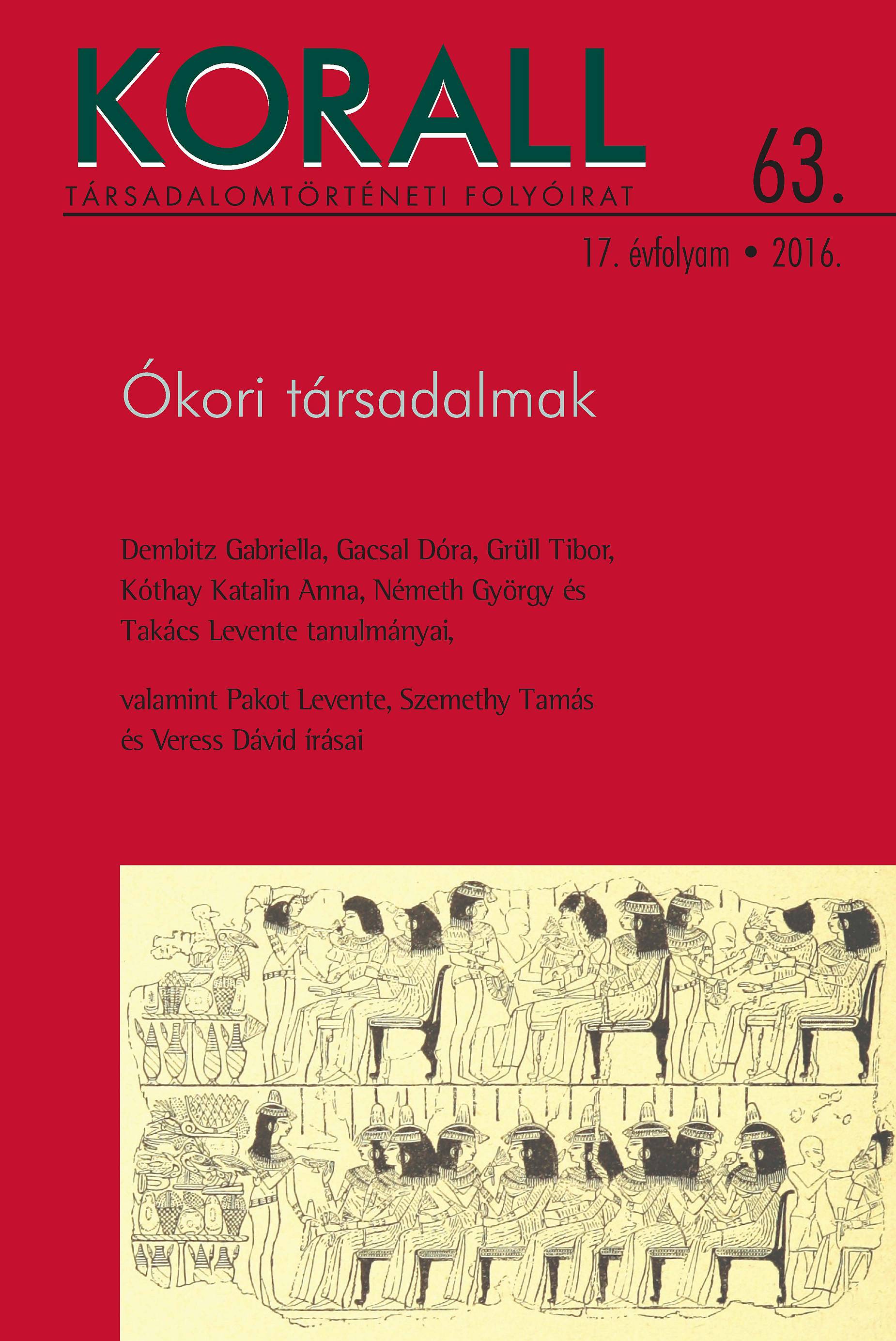A tartományi úr és a „kiváló kisember”: önreprezentáció és társadalmi státusz az Első átmeneti kori egyiptomi életrajzokban
The Provincial Ruler and the “Excellent Commoner”: Self-Representation and Social Status in Egyptian Autobiographies of the First Intermediate Period
Author(s): Katalin Anna KóthaySubject(s): Cultural history, Social history, Ancient World
Published by: KORALL Társadalomtörténeti Egyesület
Keywords: Egyptian history;social history;First Intermediate Period;biographical self-representation
Summary/Abstract: The First Intermediate Period (c. 2184–2040 BC) in Egypt is characterised by both ancient Egyptian cultural memory and earlier Egyptology as a period of political as well as social upheaval and disruption. Recent studies have shown that the changes that occurred at the time should be understood as a profound social transition which, however, the Egyptians of the First Intermediate Period did not experience as a cataclysm. Political decentralization allowed provincial/local leaders and powerful families to increase their wealth and expand their authority over a wider region, while a new intermediary social category (often called “excellent commoners” in contemporaneous texts) rose to wealth and status. Both the elite and the new men recorded their lives in biographical inscriptions written in their tombs and on stelae. By studying the themes and motives of these biographies, as well as their changes over time, the paper explores how the two social groups defined their identities in the new political and social climate. Social and regional variations are also investigated, as well as the relationships between biographical self-representation, social norm and social organisation.
Journal: Korall - Társadalomtörténeti folyóirat
- Issue Year: 2016
- Issue No: 63
- Page Range: 5-21
- Page Count: 17
- Language: Hungarian

